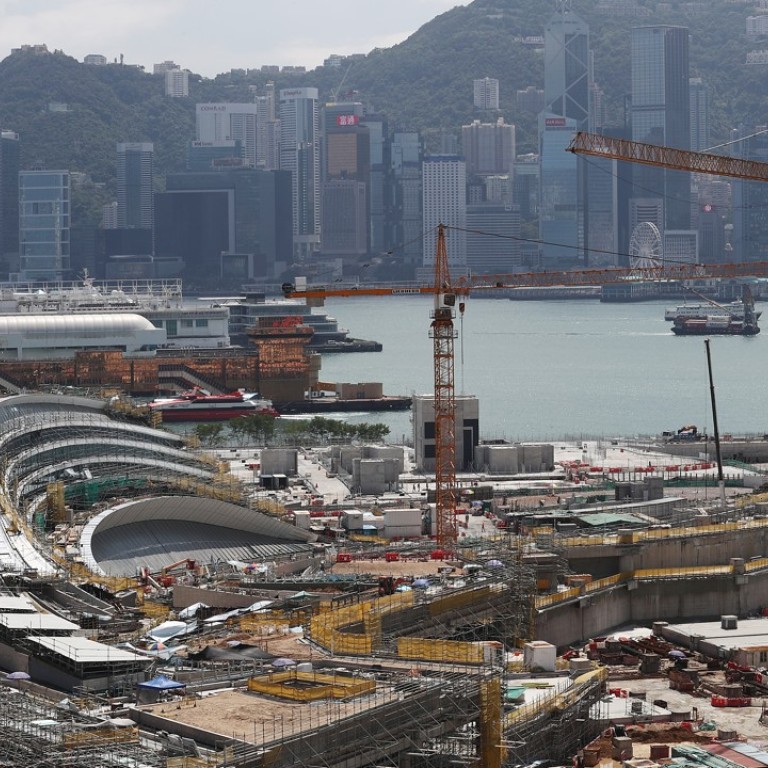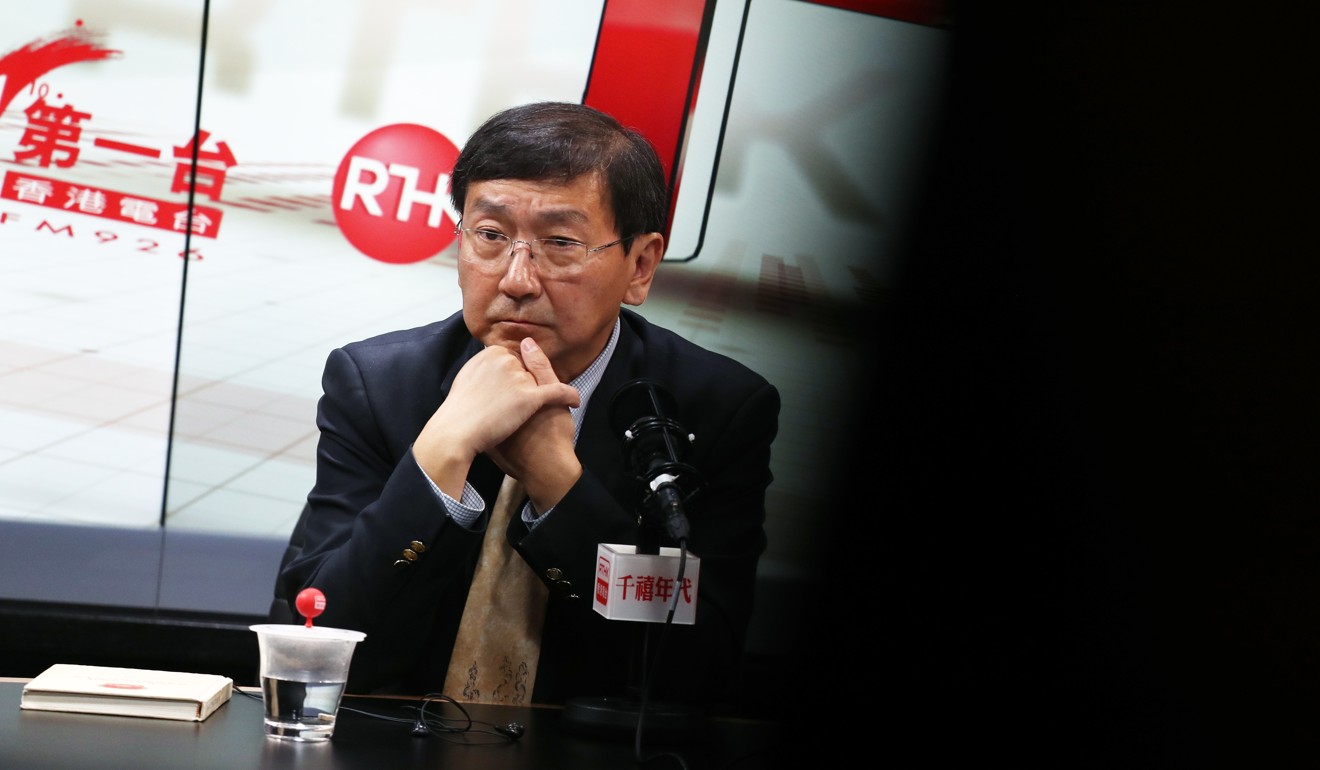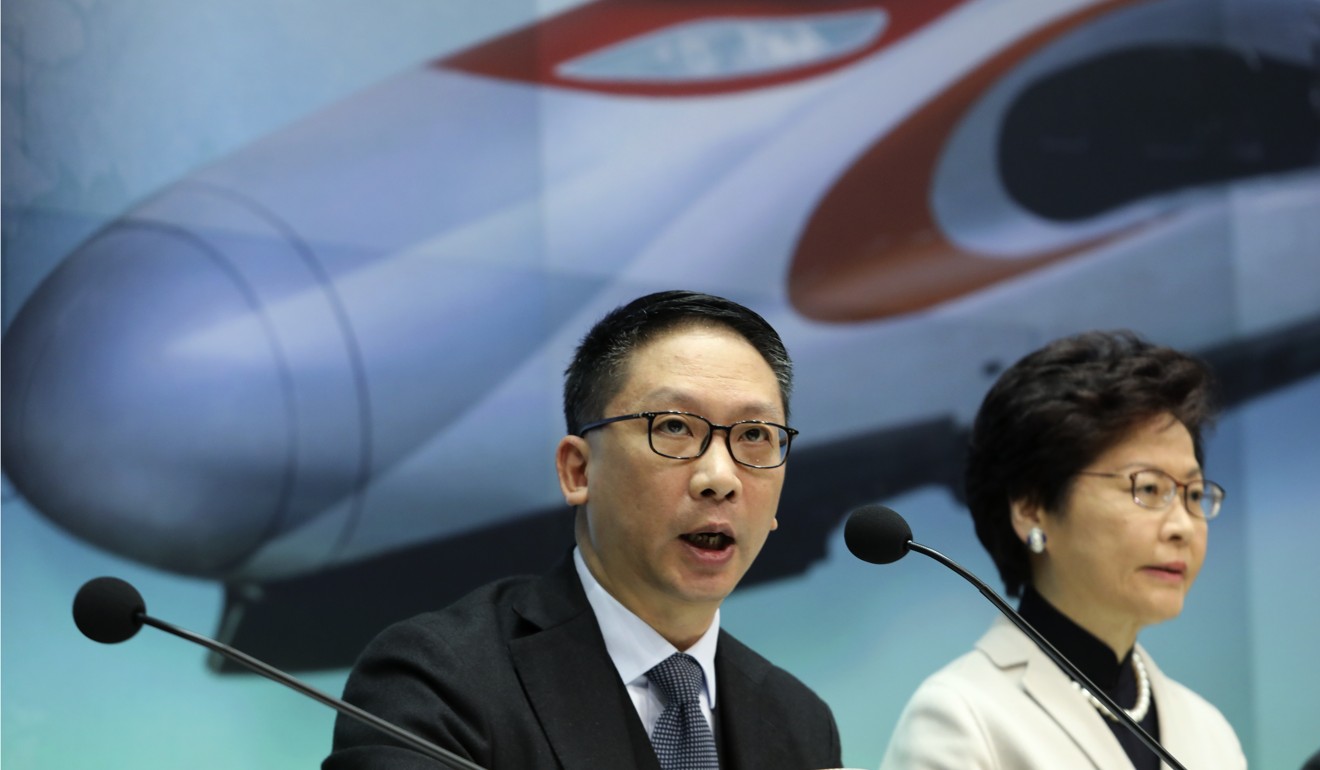
Beijing’s top office on Hong Kong affairs says city ‘must implement’ controversial joint checkpoint for high-speed rail
The State Council’s Hong Kong and Macau Affairs Office makes demand while city’s legal experts maintain arrangement goes against the rule of law
Six things to know about Hong Kong’s controversial ‘co-location’ joint checkpoint scheme
“[Authorities] on the mainland and in Hong Kong must execute [the NPCSC’s] decision,” a HKMAO spokesman said to state-owned news agency Xinhua.
Li Fei, the head of the NPCSC’s Basic Law Committee, dismissed criticism that the plan, known as co-location, flouted Article 18, which states that barring a few exceptions, national laws should not be applied in Hong Kong.
Joint checkpoint plan will not undermine Hong Kong’s autonomy, Basic Law Committee member says
National laws would only apply to a designated zone in the terminus – where police and customs officials from across the border would handle immigration procedures for travellers in both directions – and not the whole of the city, Li said.
The HKMAO spokesman echoed Li’s point about the NPCSC’s decision being legally-binding, saying it was the “permanent body of the highest organ of state power”.
Referring to the Hong Kong government’s next step, which is to table relevant local legislation by February for approval by the Legislative Council, the spokesman said he believed the laws would be passed in time for the over-budget and long-delayed rail link to begin operations as scheduled in the third quarter of next year.
Lawmakers finally back Hong Kong government’s push for joint railway checkpoint with mainland
But opposition lawmakers and legal experts in Hong Kong on Thursday maintained that the co-location arrangement for the HK$84.4 billion rail link violated the Basic Law and impinged on Hong Kong’s autonomy.
Hong Kong returned to Chinese rule in 1997 and is given freedoms not available to those in mainland China under a governance formula known as “one country, two systems”.

Johannes Chan Man-mun, the former dean of the University of Hong Kong law school, told a radio programme that the standing committee’s decision was tantamount to creating a “new path” for itself to change the rule of law in Hong Kong.
“How can it change Hong Kong’s legal basis or provide a legal basis for a controversial issue in Hong Kong? This is a new path that affects ‘one country, two systems’,” Chan said.
Joint checkpoint for rail link ‘in line with Basic Law’, Beijing’s point man on Hong Kong tells China’s top legislative body
Li had said on Wednesday there was no single article that the NPCSC had relied on to make its decision, as the Basic Law, drafted more than 20 years ago, could not have envisaged future developments such as this.
“Let me just say that the ‘one country two systems’ principle was unprecedented,” he said. “The Basic Law … cannot be so clear as to explain everything, and to foresee everything that could happen.”
But Chan argued on Thursday that if the joint checkpoint had to be established, Beijing should consider legal means such as amending or interpreting existing constitutional provisions.

On the same radio programme, barrister Eric Shum Sze-man urged the Bar Association and the city’s justice minister, Rimsky Yuen Kwok-keung, who will leave his post next month after helping to push through the co-location arrangement, to speak up and defend Hong Kong’s rule of law.
In response to the Post, a spokesman for the Bar Association said its governing body “is considering the matter now and the chairman will not make any personal comments at this stage.”
Separately, a spokesman for Beijing’s liaison office in Hong Kong lauded the NPCSC’s decision and told Xinhua: “The constitutionality and legality of the arrangement is unquestionable.”
“It is conducive for Hong Kong to maintain its status as an international financial, trading and shipping centre, as well as for it to better integrate into the nation’s development plans,” he added.

